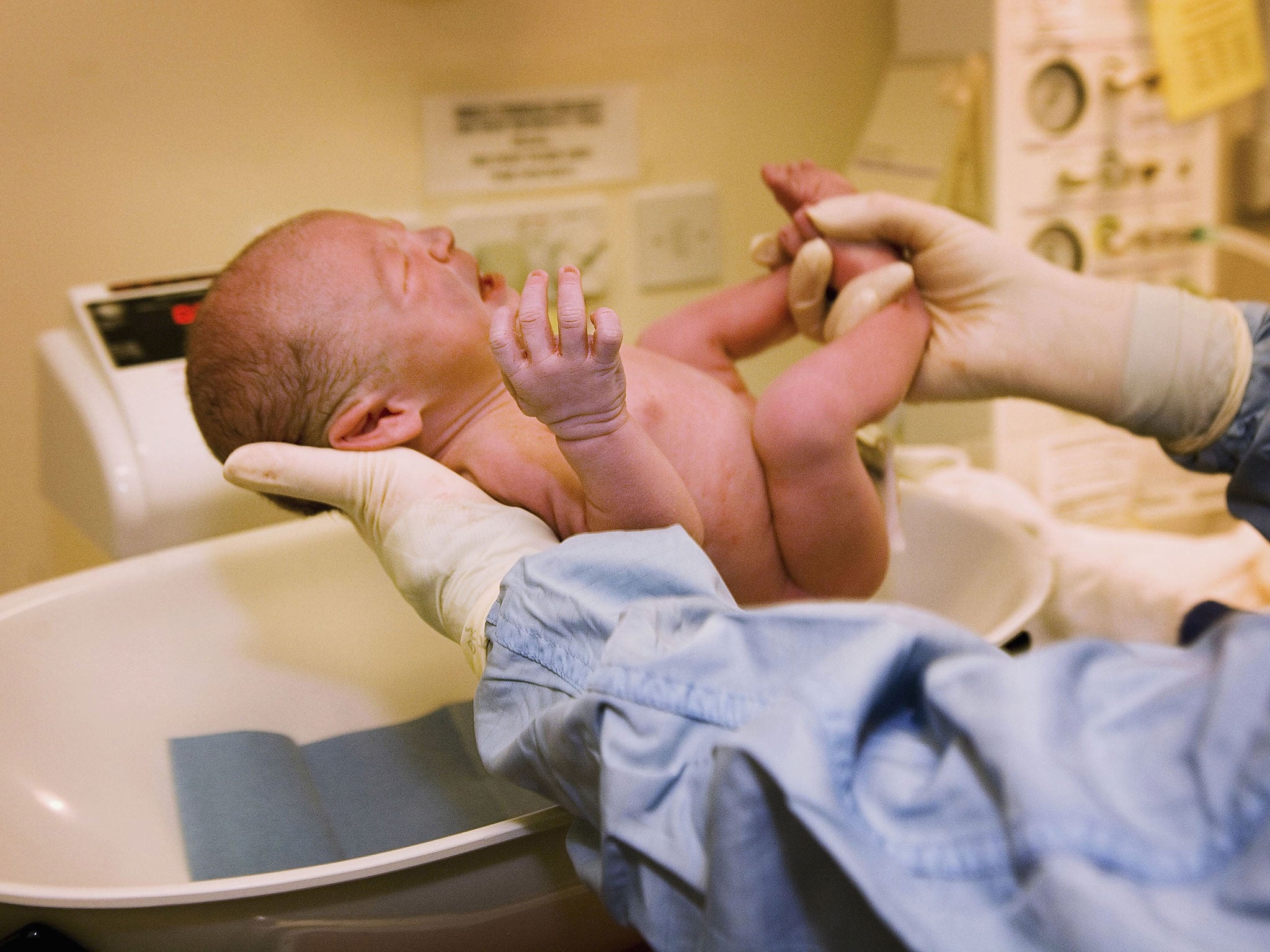Bloodied, battered and high on painkillers: the brutal reality of natural childbirth
13 per cent of mothers at London’s St Thomas’s Hospital, where I had all three of my children, opted for a C-section before they’d got anywhere near a delivery room

Your support helps us to tell the story
From reproductive rights to climate change to Big Tech, The Independent is on the ground when the story is developing. Whether it's investigating the financials of Elon Musk's pro-Trump PAC or producing our latest documentary, 'The A Word', which shines a light on the American women fighting for reproductive rights, we know how important it is to parse out the facts from the messaging.
At such a critical moment in US history, we need reporters on the ground. Your donation allows us to keep sending journalists to speak to both sides of the story.
The Independent is trusted by Americans across the entire political spectrum. And unlike many other quality news outlets, we choose not to lock Americans out of our reporting and analysis with paywalls. We believe quality journalism should be available to everyone, paid for by those who can afford it.
Your support makes all the difference.Anyone who has ever floated into a birthing centre to breathe out their baby, playlist at the ready, might have mixed feelings about natural birth advocate Sheila Kitzinger, who died yesterday. In all likelihood, they will have emerged bloodied, battered and high on painkillers to numb what, for tens of thousands of mothers every year, is the brutal reality of childbirth.
Those for whom labour wasn’t the orgasmic fantasy depicted in Kitzinger’s multiple publications might feel cheated when recalling how their baby was yanked from their bodies. The miracle of birth aside, it can be hard to erase hours, if not days, of delivery-room trauma after your birth plan – Kitzinger’s bequest to the nation – envisaged the opposite.
I should know. I’ve been there, lights dimmed in the birthing pool suite, with the promise of meeting my baby within minutes, only to wind up in the operating theatre seven hours later after three failed attempts to suck him out with a ventouse, the dreaded sink plunger of childbirth. And dressed in one of those gowns to boot. Yes, an emergency Caesarean section saved my first child – not to mention my own life when my mother gave birth to me.
But if you think the solution to problematic births lies in surgeons and scalpels, then I’m afraid the World Health Organisation (WHO) has some bad news. The global health body is worried that doctors across the planet are far too eager to resort to C-sections, which account for around one in every four births each year in the UK. That’s a figure that jumps to one in three at the country’s only fully private maternity hospital, the “too posh to push” Portland. Even that pales compared with some private hospitals in Brazil, where nearly all babies are born via a Caesarean.
Yes, C-sections can save lives – of both babies and mothers – but the WHO report cites United Nations-backed studies suggesting that there is “no evidence” the death rate decreases when the rate goes beyond one in 10 births.
Now consider that 13 per cent of mothers at London’s St Thomas’s Hospital, where I had all three of my children, opted for a C-section before they’d got anywhere near a delivery room.
The WHO is worried that the effects of C-section rates on “maternal and newborn outcomes such as stillbirths or morbidities like birth asphyxia are still unknown”, let alone the procedure’s impact on women’s psychological and social well-being.
It’s easy to forget that C-sections are a big deal, potentially even a bigger ordeal for new mothers than the new baby she is left – painfully – nursing. I was reminded of the risks of what is major surgery when weighing up how to give birth to my third baby last year. I lost a lot of blood after baby number two – four-and-a-half-litres, to be precise – so my consultant was anxious to do everything possible to avoid what’s known as a postpartum haemorrhage third time round. Weighing everything up, he advised against a C-section because, understandably enough, your body spurts blood when it’s cut open.
The answer lies not in medicalising what Kitzinger rightly preached is a natural process but in giving mothers-to-be all possible support to birth their baby without intervention. And that means more midwives.
Join our commenting forum
Join thought-provoking conversations, follow other Independent readers and see their replies
Comments